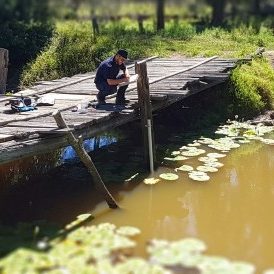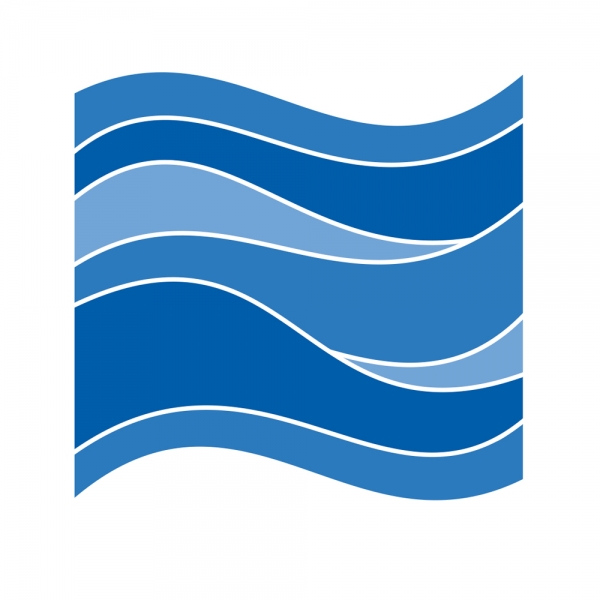EcoEng @ WRL

There is an urgent need for ecosystem restoration. The United Nations has declared 2021-2030 the Decade of Ecosystem Restoration. This global effort aims to massively up-scale the restoration of degraded and destroyed ecosystems as a proven measure to restore ecosystem services, fight the climate crisis and enhance food security, water supply and biodiversity.
EcoEng @ WRL places a strong emphasis on partnerships, collaborations and joint studies. While our research focuses on the water-based processes in the environment, we value our partnerships with the ecological, economic, management and engagement experts. We encourage other groups to develop partnerships and establish contacts to ensure we have the best understanding of a community, including local concerns and global implications. With an outstanding, enthusiastic and committed team of scientists, engineers and cross-disciplinary colleagues, the group draws upon its extensive research and experience to provide innovative and effective answers to complex ecosystem engineering questions throughout Australia and overseas.
Key areas
Restoration and creation of wetlands and waterways: Nature is complex. Endangered ecological communities exist in a fine balance, influenced by numerous factors. Over the past 20+ years we have restored some of the largest and most complex ecosystems in Australia. Project examples are provided below.
Priority decisions and engagement: Wicked problems require, prioritised solutions. We utilise several engineering/project management decision-making software systems to prioritise restoration actions, climate vulnerability, economic benefit analyses, etc. We also regularly work with local communities and government to develop educational modules and demonstration projects.
Remediation of contaminated or threatened ecosystems: Eco-engineering combines engineering principles with ecosystem restoration practice. One of our key strengths is linking these disciplines to restore waterway health, redesign landscapes and create new habitats that are safe for the community and based on sound ecological principles. To date, we have specialised in acidic, eutrophic, and PFAS contaminated environments and associated remediation.
Climate Change assessment and response: Exploring and quantifying local scale impacts, assessing waterway risk, designing adaptation strategies and infrastructure, using physical and numerical models for further understanding, communicating with stakeholders and communities.
-
- Waterway and wetland restoration and management
- Climate change risk assessments for waterways
- Hydrodynamic and water quality modelling for rivers, estuaries, lakes and wetlands
- Field data collection, analysis and monitoring
- Eco-hydrology assessments of intertidal systems (saltmarsh, mangrove, etc.)
- Acid sulphate soils investigation and remediation
- Floodgate and infrastructure design (including SmartGates and SwingGates)
- Riverbank erosion vulnerability assessments
- Water quality sampling and sediment transport studies
- Interactive GIS mapping and geospatial analysis techniques
- Groundwater and connected water investigations
- Green and Golden Bell frog habitat design
- Comprehensive and interdisciplinary project management
- Understanding anthropogenic impacts on fish, flora, fauna
- Development of Best Practice Manuals
- Expert Panel, Board and Commission involvement
EcoEng @ WRL is also able to prepare and present in-house training and development courses specifically tailored to the needs of staff. A range of training courses are currently being provided across Australia, if interested.
-
- Climate change in estuaries - State of the science: Winner of the Innovation Award at the 2019 NSW Coastal Conference.
- Tomago Wetland restoration project: Winner of the 2013 National Trust of Australia’s Award for Conservation, and 2014 NSW Engineering Excellence Award.
- Big Swamp restoration project: Winner of the 2015 Green Globe Award for Natural Environment Sustainability
- Oyster reef restoration project
-
EcoEng @ WRL are currently involved in over 30 research projects across Australia. While these projects are constantly evolving, recent examples include:
-
- Everlasting swamp hydrodynamic modelling study, Clarence Valley
- Clybucca Wetlands tidal restoration
- Clyde Terminal conversion: Restoration of Green and Golden Bell Frog habitat and field monitoring and assessment of Clyde Terminal Wetland
- Provision of modified floodgate design for Fullerton Cove and Tilligerry Creek
- Hunter River estuary water quality model
- Provision hydraulic and cost benefit assessment of the impact of climate change on the Hunter Valley Flood Mitigation Scheme
- Lake Illawarra entrance channel management options development
- Manly Lagoon survey and water levels, acid sulphate soil testing and borelog digitising
- Clarence River fisheries research project assessing the blue economy and wetland restoration
- Shoalhaven River entrance management study
- Hydrological study of Teal Lagoon
- Thirlmere Lakes water balance assessment
- Yeramba Lagoon restoration
- Migratory shorebirds biodiversity planning at Kooragang Island
- Avalon Wetlands intertidal restoration and hydrologic assessment
-
Climate change in estuaries – risk assessment guide
This project was awarded the 2019 NSW Coastal Management Award for Innovation at the 28th Annual NSW Coastal Conference.
Assessing the impacts of climate change in estuaries is a complex task. To help navigate this complexity, a multi-report guide has been designed by EcoEng @ WRL along with project partners and colleagues at NSW Office of the Environment and Heritage, Sydney Institute of Marine Science, and Macquarie University, for estuarine managers, scientists, practitioners and coastal communities. Read more at: http://estuaries.wrl.unsw.edu.au/index.php/climate-change/risk-assessment-guide/
Eco-Thresholds, a global database of ecological thresholds for estuarine species
This database was created as a tool to facilitate public access to meta-data on species-specific environmental thresholds necessary for assessing climate change risk in NSW estuaries. Read more, and visit the database at: http://estuaries.wrl.unsw.edu.au/index.php/climate-change/eco-thresholds-database/

